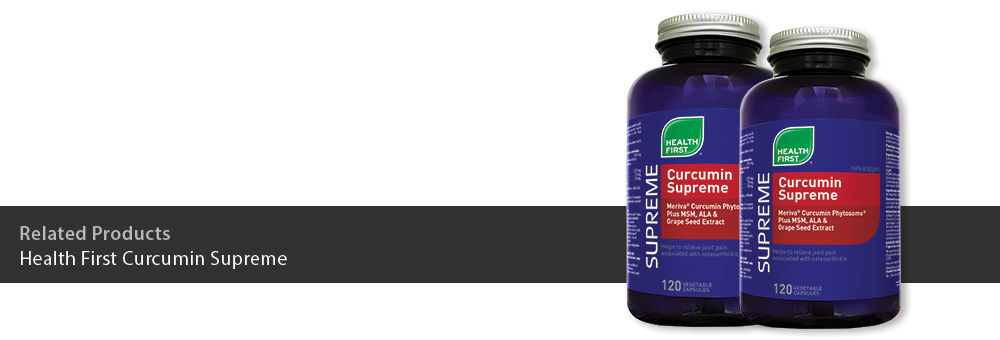

Curcumin Can Save Your December
Inflammation is behind many of today’s most dangerous health conditions – learn how curcumin can help put out the fire.
Inflammation is the body’s natural defense against injuries and invading pathogens. The body uses a combination of heightened body temperature, free radicals, proteins and powerful macrophage cells to attack internal dangers and promote healing. And now for the bad news…
While inflammation is an evolutionary development that has helped humans survive and adapt, it is a double-edged sword. The ability to regulate inflammation is critical. Aging reduces our ability to regulate our inflammatory reactions; when aging is combined with a diet high in unhealthy fats and sugars, exposure to free radicals via environmental toxins, obesity and an inactive lifestyle, inflammation can become systemic or chronic. Our body begins to attack its own nerves and organs leading to degenerative disease.1
In fact, the health conditions related to systemic inflammation reads like a “who’s-who” of today’s fastest rising and most debilitating diseases:
- Congestive heart failure
- Heart attack
- Arthritis and joint pain
- Cancer
- Diabetes
- Alzheimer’s disease
- Lupus
- and many others.2
In looking for safe, natural ways to help reduce the effects of systemic inflammation, one particular culinary spice is gaining much attention. Curcumin, the pigment that gives the fiery Indian dish curry its signature yellow colour, has a long tradition of anti-inflammatory use and a present and future as one of the most research-backed nutraceuticals on the market. There have been over 2,0400 scientific reviews of curcumin, many showing its potential as an anti-inflammatory, anticarcinogenic, antiviral, immune-modulator and cholesterol lowering nutrient.3,4 Curcumin appears to work via its ability to down-regulate inflammatory enzymes such as COX-2 which can cause systemic inflammation and through its antioxidant properties.5
Although curcumin clearly has tremendous potential for overall health due to its anti-inflammatory properties, its poor absorbability has been a problem.6 It is estimated that as much as 75% of curcumin is directly excreted after ingestion.7 New research suggests that complexing curcumin with plant phytosomes (phosphatidylcholine) allows up to 20 times more cellular uptake of this valuable spice. More absorption means more anti-inflammatory effectiveness. Double-blind clinical studies have shown that curcumin phytosomes provide effective relief of inflammatory-related joint pain and immobility and lower blood levels of C-reactive proteins (CRP) which are indicative of overall inflammation.8
Whether you are suffering from the common inflammatory disease of osteoarthritis, or want help in preventing some of today’s other major health conditions, curcumin can be a useful partner in putting out the inflammatory fire.
REFERENCES
- MacWilliam, Lyle. Nutrisearch Comparative Guide to Nutritional Supplements. Northern Dimensions Publishing. 2007. P. 14.
- Physicians Desk Reference for Nutritional Supplements. Medical Economics Company. 2001. P. 119
- Jurenka, Julie S. Anti-inflammatory Properties of Curcumin, a Major Constituent of Curcuma longa: A Review of Precliinical and Clinical Research. Alternative Medicine Review. Volume 14. Number 2. 2009.
- Physicians Desk Reference for Nutritional Supplements. Medical Economics Company. 2001. P. 118
- Kidd, Paris M., PhD. Bioavailability and Activity of Phytosome Complexes from Botanical Polyphenls: The Silymarin, Curcumin, Green Tea, and Grape Seed Extracts. Alternative Medicine Review. Volume 14. Number 3. 2009. P. 226.
- Physicians Desk Reference for Nutritional Supplements. Medical Economics Company. 2001. P. 118
- Belcaro, Gianni, et al. Product evaluation registry of Meriva®, a curcumin-phosphatidylcholine complex for the complementary management of osteoarthritis. Irvine3 Circulation-Vascular Laboratory, Dept. of Biodmedical Sciences, Chieti-Pescara University, Italy.

